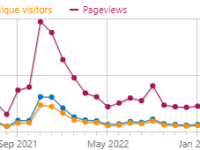The Virtual Assistant project targets every person that may come to require information on how to access and make use of Portuguese Public Services. It takes the shape of an AI driven ChatBot (powered by ChatGPT3.5), designed on Azure Cloud AI architecture as a public/private partnership. Our Innovation demonstrates a clear use case for AI within the public sector, and it was developed to address effectiveness, efficacy and quality issues inherent to the provision of public services.
Innovation Tag: Citizen Engagement
The study integrates Artificial Intelligence (AI) techniques, and a digital twin methodology to process and interpret urban data streams derived from citizen interactions with the city's coordinate-based problem mapping platform. Using an interactive GeoDataFrame within the digital twin methodology, dynamic entities facilitate simulations based on various scenarios, allowing users to visualize, analyze, and predict the response of the urban system at
Bağcılar Municipality has implemented an Algorithmic Decision Systems model with the aim of maximizing the value proposition and satisfaction level offered to stakeholders at the minimum cost. This model enables the municipality to make decisions regarding the investment worthiness of its current and planned services and activities, as well as the direction of improvements needed in existing products and services, both in the eyes of stakeholders and the organization.
Participatory innovation around mental health which created a working group that advised on solutions to tackle mental health, addictive behaviours and drug-related problems in Valencia, integrating the Government's agenda and policy.
Case Study
Protected: Internet WiFi gratis para mejorar el desarrollo tecnológico, educativo y social de la…

The Pasco Regional Government proposes free WiFi to enhance access to information and education in parks and squares, reducing digital divides. Customized home pages and user management aim to close regional digital gaps, fostering educational, professional, and commercial activities.
Initiative that promoted the publication of open data from public entities and encouraged its effective use by citizens. The initiative promotes open public data through the National Open Data Platform, meeting global standards and gaining recognition from organizations like OAS and ILDA. Collaboration enhances entities' international standing, fostering open data adoption. Emphasizing data openness, it spotlights leading institutions nationally and regionally, encouraging transparency and…
The "Ficha Única del Proveedor" created to address the lack of transparency in public procurement, consolidates key data about state suppliers, including composition, representatives, and legal background. This innovative tool empowers citizens and service users by providing detailed information, contributing to transparency and efficiency in public procurement. Verification of sanctions and additional records further enhances its utility.
Public services play a crucial role in shaping citizens’ experience of society. This handbook is aimed at professionals working in public services and focuses on concrete pratices to strengthen trust and democracy in everyday service encounters. It helps to make public services more effective by initiating and maintain trust, enhancing participation and agency, and through them delivering better learning, better safety, and better welfare.
Gov.gr has boosted the number of digital systems and services in Greece and dramatically increased the number of their users (>70% of the population). In this direction, HowTo has been designed to deliver simple, online micro-courses, that guide citizens and public servants in the use of the new systems and services. HowTo supports continuous training for new features and capabilities and certification where needed. Its communities foster collaboration and peer-to-peer problem-solving.
India has several small cities lacking resources which has prevented them from offering digital services. To reduce the digital divide amongst the towns and cities and to ensure availability of digital services across the urban landscape of the country, NUDM attempts to offer a free, ready-made, and open-source software platform to cities and/or collectives (states). This platform is a choice-based model that benefits cities of varied maturity levels and preserves their existing investments.




